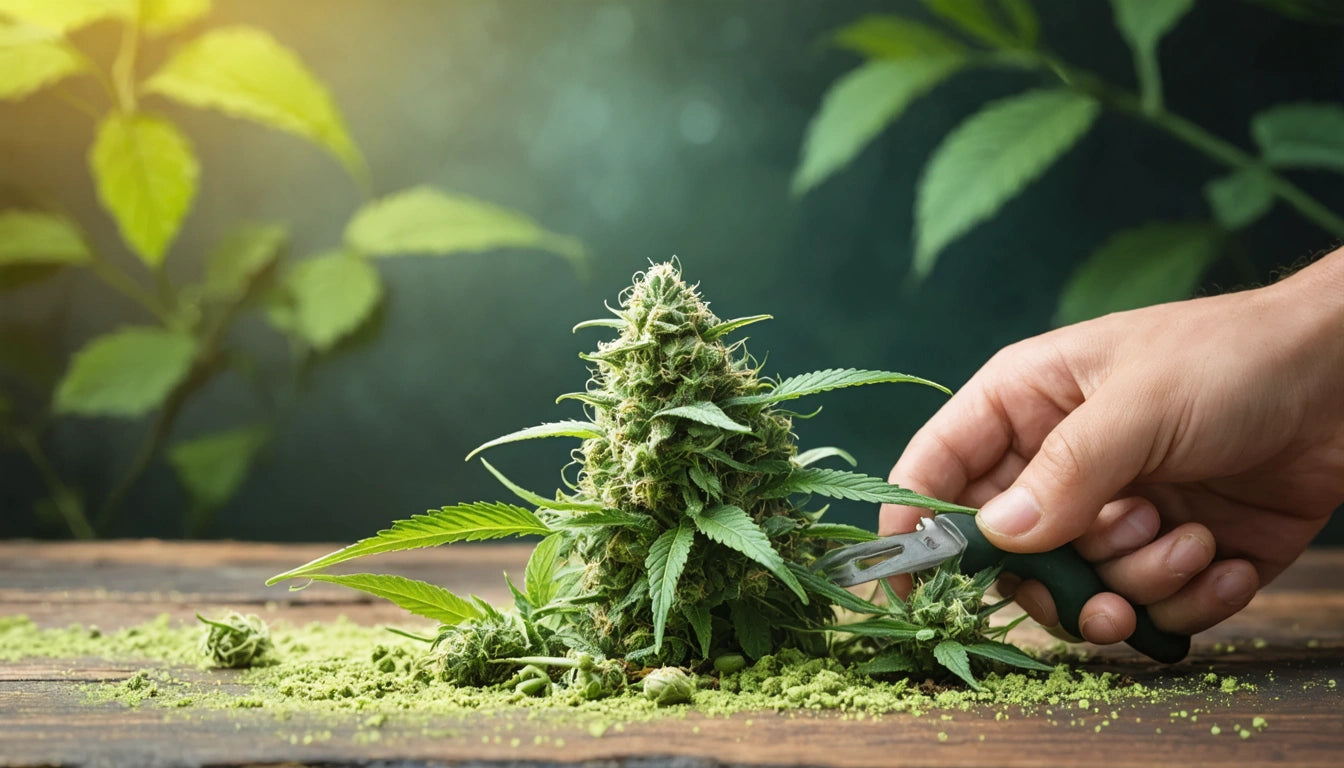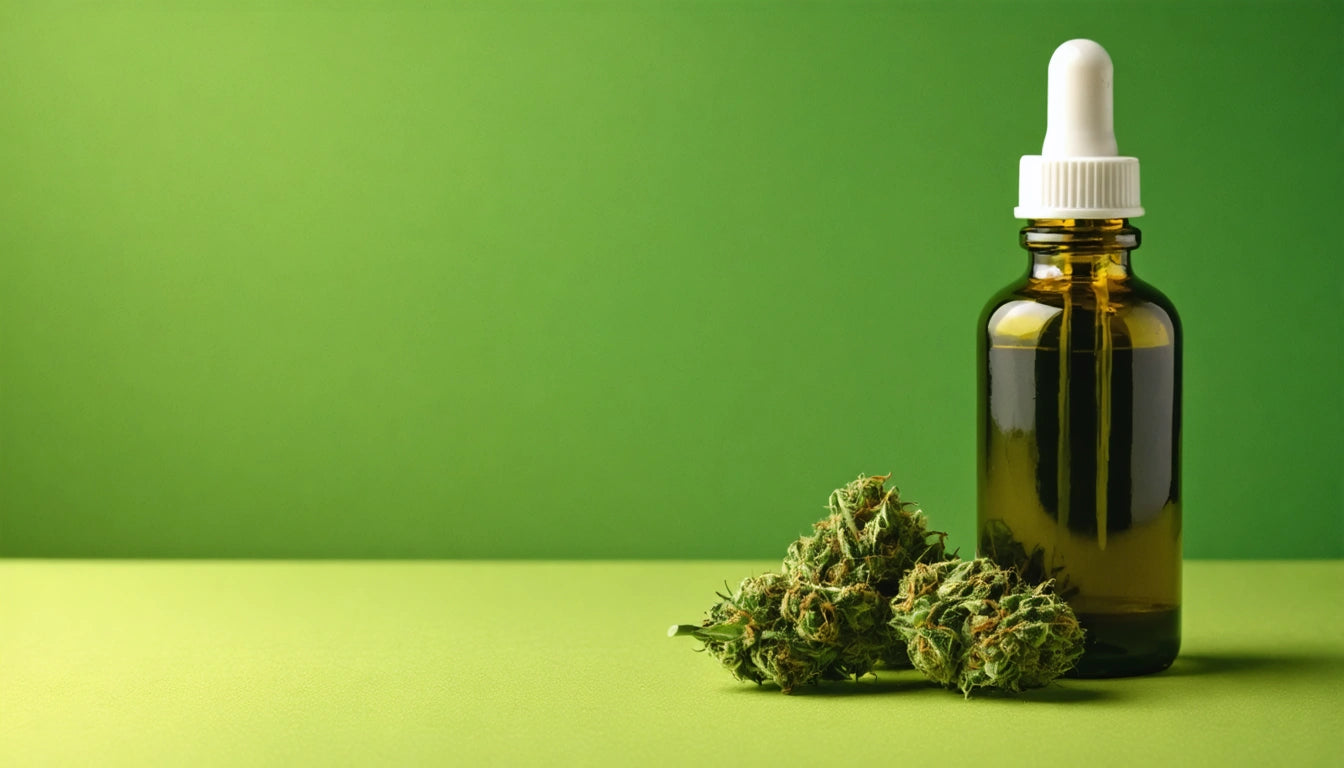Table of Contents
How Cannabis Use Impacts Liver Health: What You Need to Know
With increasing cannabis legalization and use across the country, many consumers are asking important questions about its effects on vital organs. One common concern centers around liver health, with many wondering: does weed affect your liver? The relationship between cannabis and liver function is complex, with research showing both potential benefits and risks depending on various factors including consumption method, frequency, and individual health conditions.
The Relationship Between Cannabis and Liver Function
The liver plays a crucial role in metabolizing substances that enter the body, including cannabinoids like THC and CBD found in cannabis. When asking if does cannabis affect the liver, it's important to understand that any substance processed by this organ has some interaction with it.
Research indicates that the endocannabinoid system, which cannabis compounds interact with, is present in liver cells. This means cannabis can potentially influence liver function through these pathways. Some studies suggest that moderate cannabis use doesn't significantly harm liver function in healthy individuals, while others indicate potential concerns with heavy, long-term use.
According to our resource on THC and liver health, the relationship depends significantly on individual factors and usage patterns.
How THC and CBD Affect Liver Processing
When considering if does weed damage your liver, we need to examine how cannabinoids are processed. The liver metabolizes cannabinoids through the cytochrome P450 enzyme system, the same pathway used to process many medications.
THC Metabolism
THC, the psychoactive component in cannabis, undergoes first-pass metabolism in the liver, where it's converted into metabolites including 11-hydroxy-THC. This process places some workload on liver enzymes, but research hasn't conclusively shown that this normal processing causes damage in healthy individuals with moderate use.
CBD Effects
CBD has shown more significant interactions with liver enzymes. At high doses, CBD can inhibit certain cytochrome P450 enzymes, potentially affecting how the liver processes other substances. This is why the FDA has noted liver concerns with high-dose CBD products, particularly pharmaceutical preparations.
Cannabis Use in Existing Liver Conditions
For those with pre-existing liver conditions asking does pot hurt your liver, the answer varies based on the specific condition.
In some cases of inflammatory liver conditions, cannabinoids' anti-inflammatory properties might offer benefits. Some preliminary research suggests potential protective effects in alcoholic liver disease and certain forms of liver inflammation.
However, those with compromised liver function should approach cannabis use cautiously. When the liver is already strained, adding additional substances to process could potentially exacerbate issues. This is especially relevant when considering if marijuana affects other body systems simultaneously.
How Different Consumption Methods Impact Liver Health
The method of cannabis consumption significantly affects liver exposure and processing requirements.
- Edibles: When asking are weed edibles bad for your liver, consider that edibles undergo complete first-pass metabolism, meaning the liver processes virtually all the cannabinoids before they reach the bloodstream. This places more direct metabolic demand on the liver compared to other methods.
- Inhalation: Does smoking weed affect your liver as much as edibles? Generally, no. Inhaled cannabis (whether through traditional smoking or using high-quality smoking accessories like pre-rolls) partially bypasses first-pass metabolism, reducing immediate liver processing requirements.
- Sublingual/Topical: These methods typically have even less direct liver involvement initially, as they enter the bloodstream more directly.
For those concerned about liver health, consumption method matters significantly in determining overall liver exposure to cannabinoids.
Cannabis and Medication Interactions: Liver Concerns
One of the most significant liver-related concerns with cannabis use involves drug interactions. Since cannabinoids compete for the same liver enzymes that process many medications, they can potentially alter how effectively these medications are metabolized.
This can lead to either decreased medication effectiveness or increased risk of side effects if medication levels become too high in the bloodstream. This is particularly concerning for medications with narrow therapeutic windows, such as blood thinners, certain heart medications, and some seizure drugs.
The question of does cannabis affect liver function becomes especially relevant for individuals taking multiple medications or those with complex treatment regimens. Other bodily systems may also be affected by these interactions.
Current Research and Recommendations for Cannabis Users
Research on cannabis and liver health continues to evolve. While early studies raised concerns about potential liver damage, more recent research suggests a more nuanced relationship. Some studies even indicate potential benefits for certain liver conditions, particularly those involving inflammation or fatty liver disease.
For consumers concerned about whether does weed affect liver health, consider these evidence-based recommendations:
- Discuss cannabis use with healthcare providers, particularly if you have existing liver conditions or take medications
- Consider consumption methods that reduce liver processing demands if liver health is a concern
- Be aware that extremely high doses of cannabinoids, particularly CBD, may have more significant liver enzyme effects
- Understand that individual factors including genetics, overall health, and consumption patterns play major roles in outcomes
- Stay informed about cannabis effects on other body systems that might indirectly impact liver function
The question











Leave a comment
All comments are moderated before being published.
This site is protected by hCaptcha and the hCaptcha Privacy Policy and Terms of Service apply.